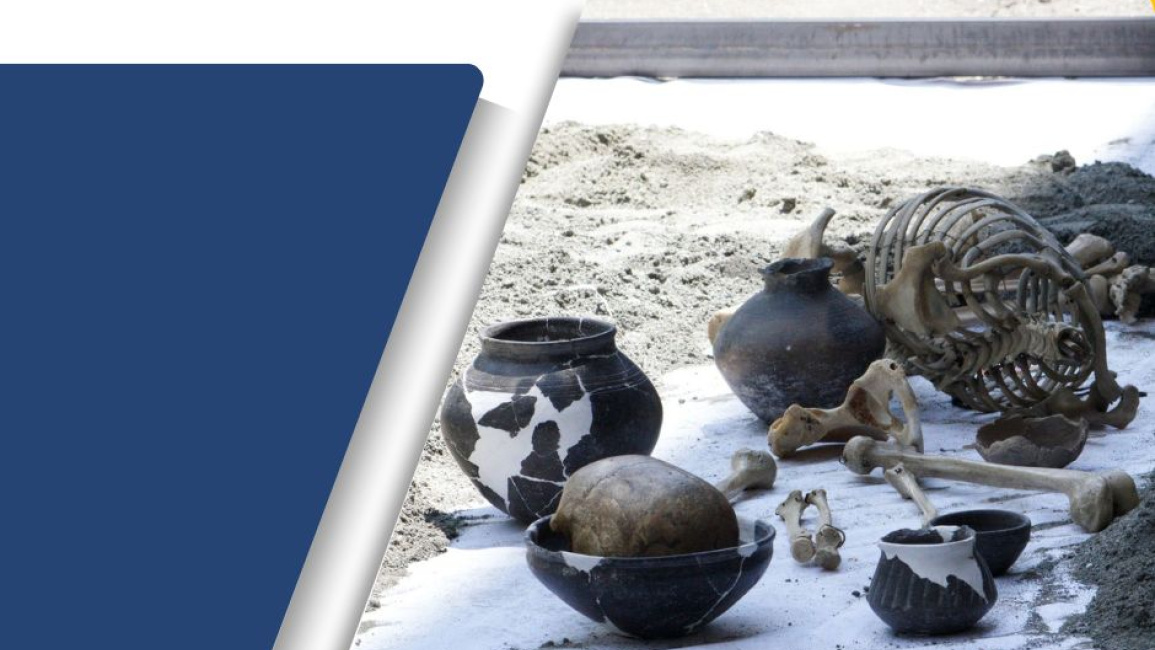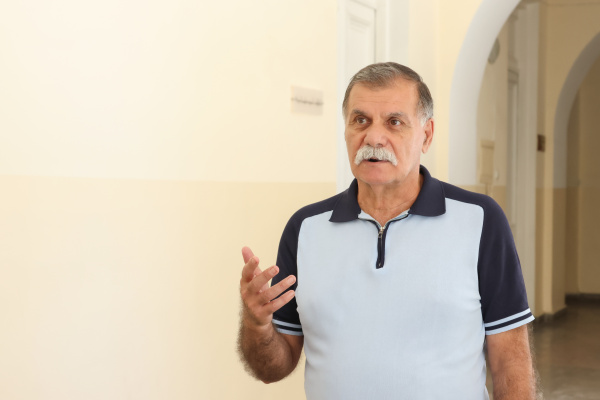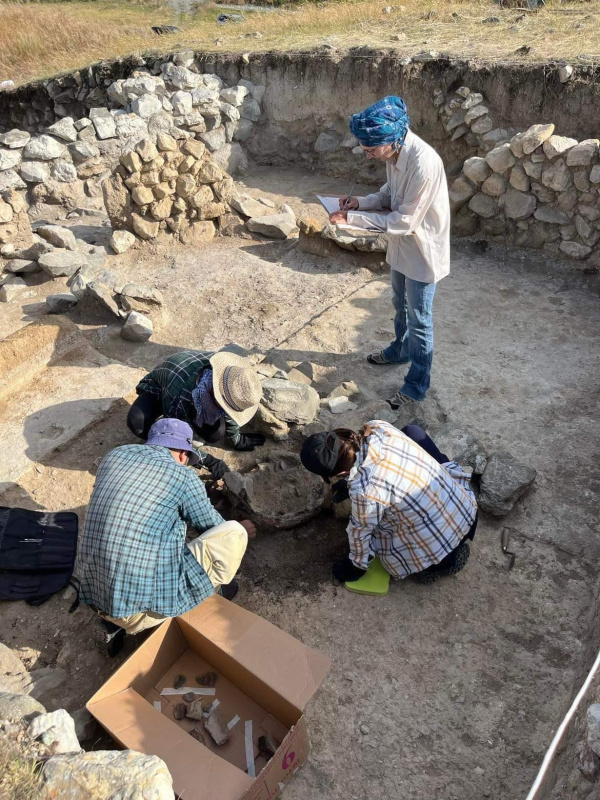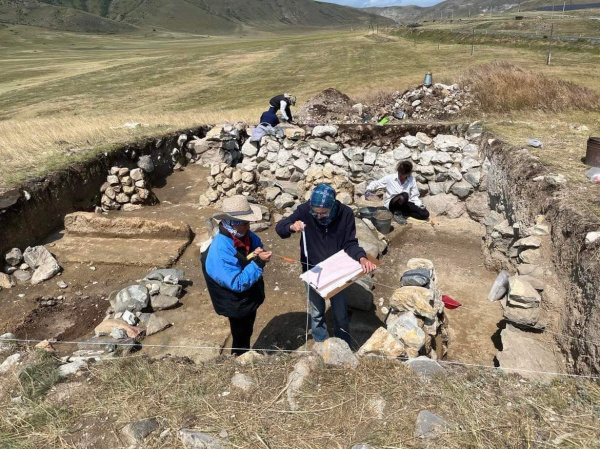June 26, 2024 | 13:15
Admission
Educational programs
Education
Archeology and ethnology: a way to promote Armenia’s global recognition
The "Archaeology and Ethnology" Master's program at the YSU Faculty of History offers students the opportunity to work in the Institute of Archeology and Ethnography at the National Academy of Sciences of the Republic of Armenia and participate in international archaeological expeditions. Through these expeditions, students gain hands-on experience with state-of-the-art technologies and become co-authors of the discovered monuments.

Professor Hayk Avetisyan, Doctor of Historical Sciences, Head of the Chair of Archeology and Ethnology at the YSU Faculty of History, Head of the "Archaeology and Ethnology" Master's program, referring to the university’s international ties within the scope of the educational program, noted that they have cooperative relations with about 20 universities worldwide, including universities in Paris, Rome, California, Tokyo, and Munich. He also emphasized that graduates of the "Archaeology and Ethnology" Master's program have the opportunity to pursue further studies abroad.

"We have had students who continued their studies at Oxford and Cambridge universities and are now leading archaeological expeditions in Armenia," said the professor.
He emphasized that archaeology is a constantly evolving science, with methods for studying discoveries continuously advancing. Armenia's recognition worldwide has been bolstered by the discovery of findings with a history of thousands of years. And in the developing world, excavations are now conducted using the latest technologies. The results of these excavations prove the existence of humanity in an earlier period. Decades ago, the earliest phase of the Stone Age was estimated to be 800,000 years old, but it has since been confirmed to be 2,150,000 years old.
In this context, Hayk Avetisyan also cited research on wine presses found in Areni years ago, demonstrating that winemaking began in the Armenian highlands 300 years earlier than, for example, in Georgia, one of the countries of the region.

"Science continually advances and new discoveries are made through excavations. Our region has been a cradle of civilization, playing a significant role in the development of global civilization as well. Today, we confidently assert our indigenous connection to these highlands; genetically, we have roots deeply embedded in this territory," pointed out the head of the educational program.
Referring to the archaeological works being carried out in the territory of Armenia, the professor mentioned: "Archaeology is in the field of objective research. Despite various disturbing external circumstances, Armenia remains open in this regard, welcoming research teams from abroad, including those from Europe and the USA, to conduct excavations."
Hayk Avetisyan, presenting modern research approaches, emphasized that archaeologists now study the material composition of discoveries. For instance, they explore the composition of clay pots, techniques for working with clay, and methods of obtaining paints for decoration.

He assured that among the monuments discovered in Armenia, there are those that are not inferior to the Egyptian pyramids in both structure and materials. For instance, the grave fields of Karashamb and the Lori Fortress contain a vast number of royal burials.
According to the professor, Armenia should promote the recognition of its heritage through making excavations. Notably, the task of the scientific community is to demonstrate that the materials found through these excavations hold universal value.
As a reminder, the documents for the 1st stage of admission to the "Archaeology and Ethnology" Master's program are accepted from June 1-28, 2024, until 6:00 pm. The entrance examination for the 1st stage is scheduled for July 2, 2024. The documents for the 2nd stage are accepted from July 8 to August 16, 2024, until 6:00 pm. The entrance examination for the 2nd stage is scheduled for August 23, 2024.
2 tuition-free places are available within the framework of the master's program. All applicants participating in the 1st stage have the opportunity to study under the free system, regardless of the grade point average (GPA), university and specialization.

